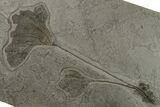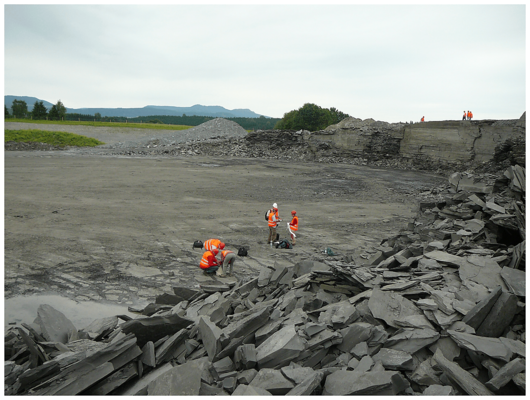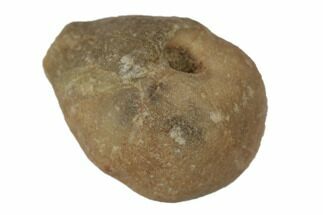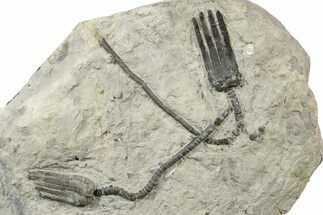This Specimen has been sold.
35" Pyrite Replaced Crinoid (Seirocrinus) Plate - Holzmaden, Germany
This is a beautiful plate with two crinoid fossils of the species Seirocrinus subangularis. This specimen was collected from the Jurassic-aged Posidonia Shale of Holzmaden, Germany. The largest crinoid is about 26.5" long (straightline) with a crown that is 11" wide, and the plate measures just over 35" tall by 22.4" wide.
There are three repaired cracks through the rock where natural seams formed. One of these repaired cracks goes through both crinoid stems. The smallest crinoid has repairs along the stem and to the crown where there was flaking/breakage during collection. The largest crinoid also has some spots of restoration across the crown. The back of the rock has been stabilized with a resin.
There are three repaired cracks through the rock where natural seams formed. One of these repaired cracks goes through both crinoid stems. The smallest crinoid has repairs along the stem and to the crown where there was flaking/breakage during collection. The largest crinoid also has some spots of restoration across the crown. The back of the rock has been stabilized with a resin.
Crinoids, sometimes commonly referred to as sea lilies, are animals, not plants. They are echinoderms related to starfish, sea urchins, and brittle stars. Many crinoid traits are like other members of their phylum; such traits include tube feet, radial symmetry, a water vascular system, and appendages in multiples of five (pentameral). They first appeared in the Ordovician (488 million years ago) and some species are still alive today.
The Posidonia Shale (part of the Sachrang Formation) outcrops near the town of Holzmaden in southern Germany have been commercially quarried for centuries. The quarried shale has been used for such things as tile, table tops, and fireplace hearths. These quarrying operations have also uncovered a vast treasure trove of beautifully preserved, Early Jurassic (~183 million years old) fossils. The lower shale layers have even produced world-class ichthyosaur fossils with preserved skin and soft tissue impressions.
SPECIES
Seirocrinus subangularis
LOCATION
Holzmaden, Germany
FORMATION
Posidonia Shale
SIZE
Rock 35.1 x 22.4", Largest crown 11" wide
CATEGORY
SUB CATEGORY
ITEM
#165880
We guarantee the authenticity of all of our specimens.
 Reviews
Reviews
















